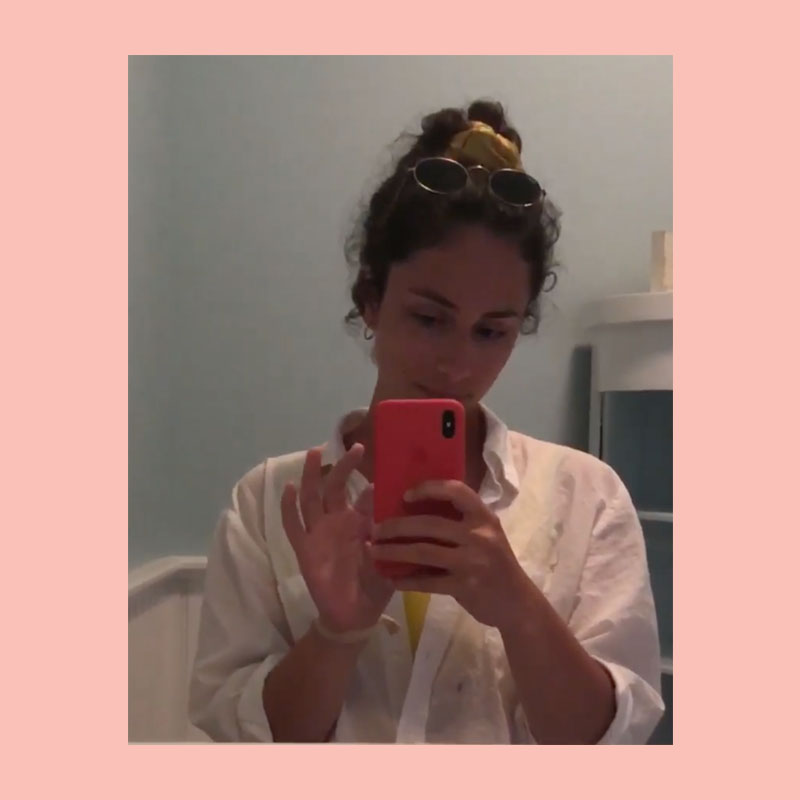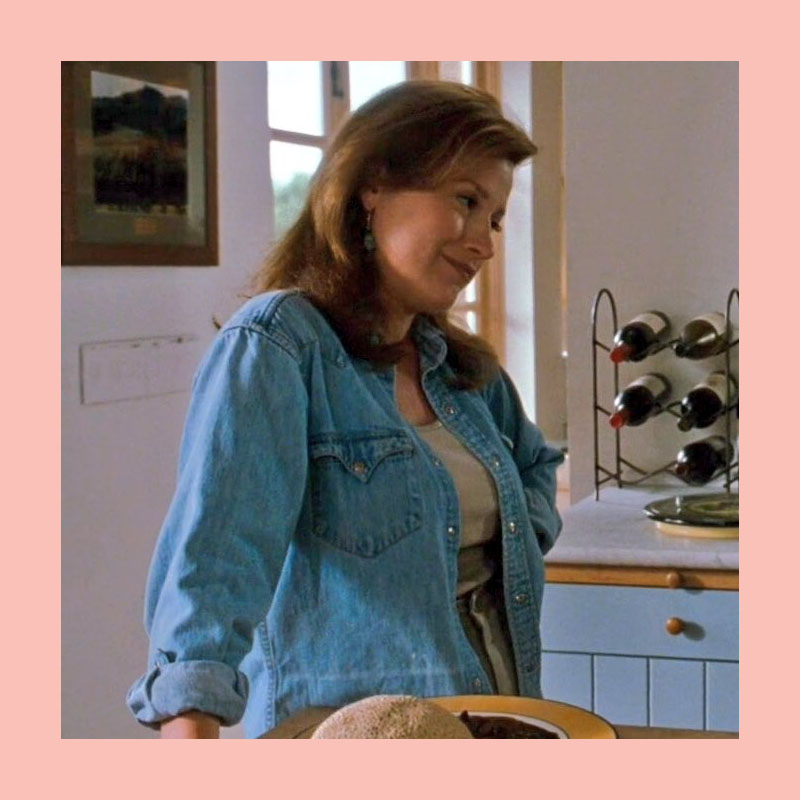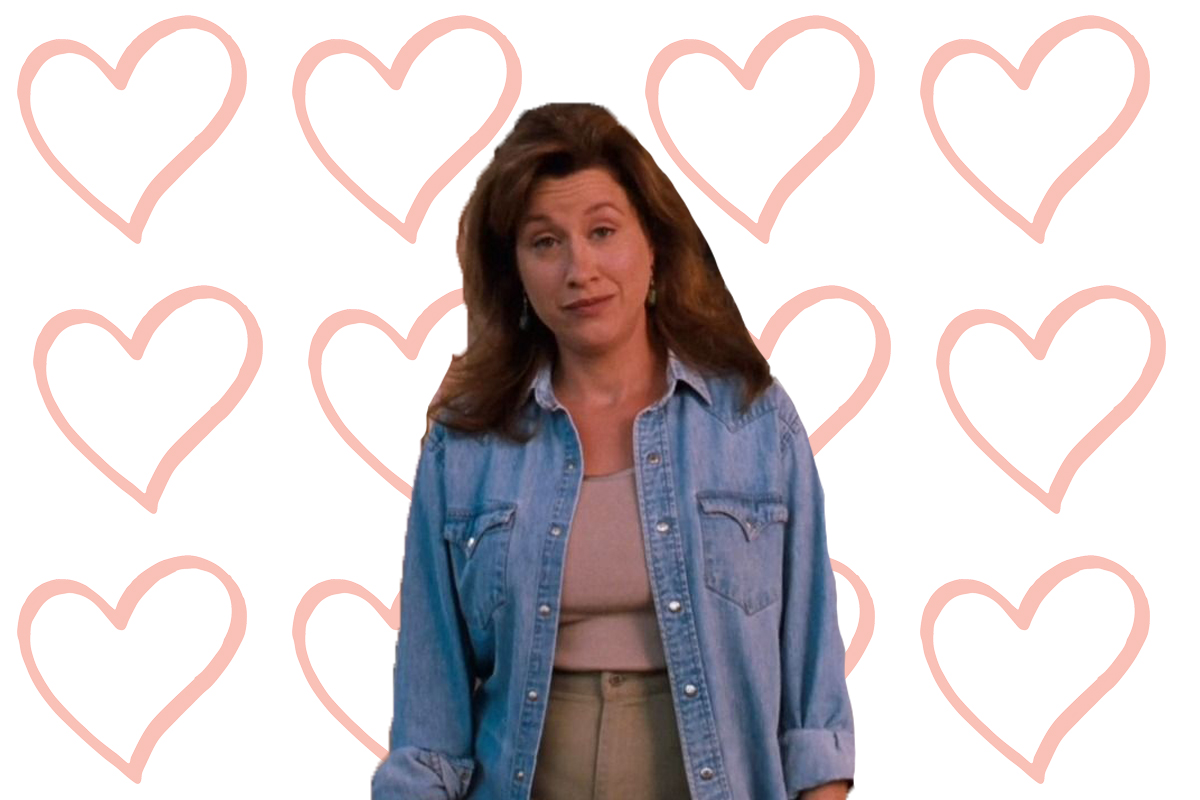I never quite understood Chessy.
This was for many reasons. One, I was never sure if her name was actually “Jessie” or “Chessy.” She looked like a Jessie, though everyone I knew in real life pronounced it with a “ch,” so I was tempted to believe them. As far as I was concerned, the identity of The Parent Trap’s most underrated character could have gone either way.
Two, I could not figure out what she was doing living in Napa with Dennis Quaid. Yes, Napa is lovely, as is 1998 Dennis Quaid, but even I, at age 7, had an understanding that it would be strange if these two were not somewhat romantically linked. So, Chessy was in love with Dennis Quaid, obviously. There were other questions I had about Chessy, but none were as existential as this. Nevertheless, she had always been my favorite character from The Parent Trap. There is an allure to Chessy: she comes in at the end of the first hour, and suddenly, you cannot imagine the film without her.
From a young age, Chessy’s presence on screen gave me a sense of pure comfort. Hallie seemed safer when Chessy was there; I felt safer when Chessy was there. Sleepaway camp can be wonderful but scarring, and the thought of returning home into Chessy’s warm embrace made an emotional day less anxiety-inducing. I more than once had a mid-August panic attack upon returning home on “departure day.” Would I have panicked had Chessy been there? Often, I imagined not.
As a child, I liked that Chessy was no Meredith Blake — she had a full bust and made denim look comfortable. I liked the way she twisted her hair into a clip or a scrunchie and wore long-sleeved button-downs in the summer. This, I thought, is a woman who has things under control.
It wasn’t until years later that I was washing my hands in a family friend’s bathroom and looked up at the vanity to see something odd. Chessy was looking back at me.
I mean this literally. I mean this in the sense that my hair was plopped in a scrunchie with loose pieces covering the edges of my face, in the sense that I was wearing an opened, flowing button-down in the 90-degree heat. There was the makeup I decided to stop wearing, the Birkenstocks on my feet, the sports bra-inspired yellow bikini top that made me look, as a friend earlier noted, “Like a housewife who voted for Reagan-Bush.”

The most reasonable explanation for my sartorial decisions that day (and many others) is menocore, a fashion euphemism coined by Man Repeller, which represents “the aesthetic of a middle-aged woman on a low-key beach vacation.” The less obvious explanation for my outfit á la Chessy is that Chessy is the middle-aged woman whose life with Dennis Quaid is not unlike a low-key beach vacation.
Chessy embodies a certain spirit: that of the one who knows all, who can cure all, who is always there, but always on vacation. It’s the kind of 40-year-old you want to be. I wouldn’t describe her as an extremely unique personality — I would imagine others might look in the mirror and see her, too — yet she remains utterly likable. Her look and her character are so familiar because they are born from something old and established.
Perhaps, then, we can find Chessy’s narrative significance by looking at what she represents in the film: the mother.
As far as 1998 films go, The Parent Trap is relatively forward-thinking. Two children are being raised by single, working parents. Particularly progressive is the twins’ mother, who works full-time and raises her child with the help of a manny-cum-butler. Parents aside, the other adult characters are manifestations of common stereotypes: evil stepmother, over-enthusiastic camp counselor, British grandfather with pipe, aforementioned manny-cum-butler.
So, where can we place Chessy? Chessy is the Jewish Mother.

“I made cornbread and chili!” are but the second string of words that come out of her mouth. She is the antithesis, in many ways, of Natasha Richardson — mom of the future, of the 21st century, of the workforce and the occasional cigarette. By placing Chessy in the narrative, two voids are filled: the otherwise missing maternal stereotype in a wide cast of characters, and her more practical use as the mother that Hallie never had. She hits two birds with one memorable scrunchie.
The stereotype of the Jewish mother has, ironically, grown more unflattering over time, though you’d think it might be otherwise. What now is “a middle-aged woman with a nasal New York accent and ample bosom” began as the Yiddishe Mama: “a sentimentalized figure, a good mother and homemaker, known for her strength and creativity, entrepreneurialism and hard work, domestic miracles and moral force,” as explained on My Jewish Learning. As the Forward puts it, the Yiddishe Mama was “the very essence of love, of warmth, of selfless devotion. She wanted nothing for her children but their health and happiness. She would defend them fearlessly and stand up for them. She was the mother who every child wanted to have, and every child who had a mother like her longed for her when she was gone.”
Sound familiar?
I am not sure if what I’ve discovered here is subtle sexism or another facet of pure joy in a film that generally presents itself as the gift that keeps on giving.
In many ways, Chessy reminds me of my own mother. In look, in attitude, in late-90s peak aesthetics. It might be that to look in the mirror and see Chessy is to see myself how I grew up believing a mother to appear: someone who is busty and dresses utilitarian enough to get it all done.
Granted, I am not quite near the stage of becoming a mother, but I still believe there is something comforting about the visual representation, even in myself, of Jewish motherhood’s homey essence. Chessy is both: It is not just her floppy hairdo, but the affection with which she stands by Hallie and later, Annie, too. It is the way she cries genuinely when she discovers that Hallie is, in fact, Annie. It is her level of empathy — that which I’ve been raised to believe can only be the product of creating a piece of yourself with a child and then giving it away.
I hope when I have babies that I am still wearing my button down and my sports bra, and that my hair is in a clip. I hope that I can look in the mirror and see both Chessy and myself. I hope we all find a Chessy, somewhere, whether it be within ourselves or not. Dennis Quaid should only be so lucky.
Parent Trap Week is an entire week dedicated to the 1998 iconic film, in honor of its 20th anniversary. See all the posts here.



